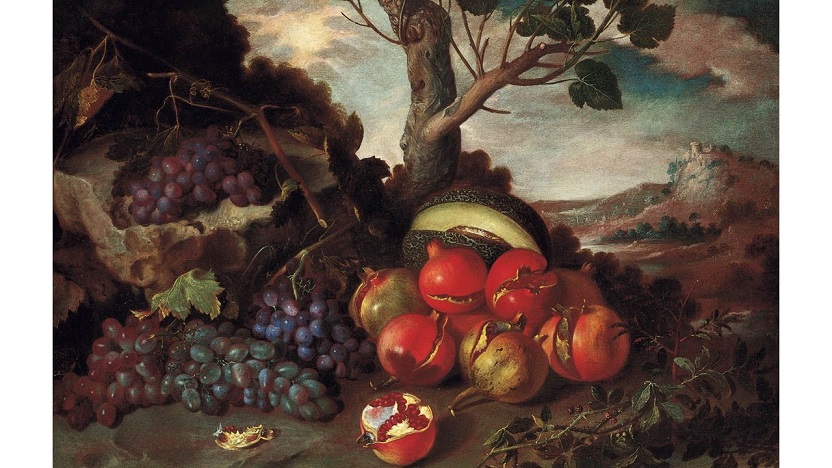.
In Her Fair Foundry, Nature Forges Art
by Claude Gaspar Bachet de Meziriac (1581-1638)
translated from French by Josh Mitteldorf
In her fair foundry, Nature forges art,
Divinity of beauty knows no peer.
The orbs of stars and planets we hold dear
Have burned their disks upon our eyes and heart.
The crest of crescent moon adorns her hairs;
She harvests rays of flaming earth to print
Upon her flowing braids their golden tint,
And shamelessly these pilfered treasures wears.
She borrows zephyr’s fragrance from the breeze,
From sea, its pearls, from earth, its ebonies,
Spring roses and the lilies of the fall—
Why then be we surprised by her largesse?
She stole our very hearts, so might we guess:
By larceny has Nature fashioned all.
.
French Original
Quand nature forma d’un art industrieus
Cette beauté divine à nulle autre seconde,
Elle prit dans des feux qui font tousjours la ronde
Par le cercle estoilé, pour en faire ses yeux.
Elle mit le croissant sur son front gracieus,
Elle emprunta les rais du grand flambeau du monde,
Afin d’en colorer sa belle tresse blonde:
Bref, elle butina tout le tresor des Cieux.
Elle prit au zéfirs leur odorante haleine,
Les perles à la mer, à la terre l’ebene,
Les roses et les lis, et la belle en orna.
Se faut-il estonner si cest larronnesse
Vole ainsi tant de coeurs, et desrobe sans cesse?
Nature de larçins toute la façonna.
.
.
Josh Mitteldorf was educated to be an astrophysicist, but his life was derailed by the anti-war movement and New Age revolution of the 1970s. His two daughters were among the first adoptees from China in the 1980s. His book, Cracking the Aging Code was co-authored by Carl Sagan’s son, Dorion. He writes about science and politics at UnauthorizedScience.org. His own poetry and music, together with curated uplifting works of others, appear at Daily-Inspiration.org. His volume of brilliantly illustrated sonnets on the 64 hexagrams of the I Ching is available as an app for augury at I-Ching.guru.















Josh, I believe you made an excellent translation of Claude’s poem replete with beautiful words, but then I leave that judging to those who know French. I have returned to read it several times and thought about not commenting. My reticence is both philosophically and religiously based. Although Claude was well trained by Jesuits and a superior mathematician, I puzzled over the concept of nature’s “larceny.” He reputedly was a humanist, which I find antithetical to most in the Jesuit order. While trained by Jesuits for most of his young life, I understand from a short bio I read that he spent only one year in the order before leaving. They may not have approved of or appreciated his humanistic views. I presume that accounts in part for his departure. From my perspective, the items mentioned in the poem are or were a part of Nature, thus they could not be stolen.
This is a good translation that takes just enough liberties with the original to make it sound poetic in English, while doing a marvelous job of preserving the spirit of the original form and rhyme.
The poem is quite beautiful. I had never heard of this poet before.
Very enjoyable, Josh. I was particularly enamoured by the line: ‘She borrows zephyr’s fragrance from the breeze’.
Thanks for the read.
Your translation shines with divine fire, Josh, showing you have not just rendered the French words, but understood and conveyed into English Bachet’s complicated concept of Nature. Though we might say everything she uses in her industrious art already belongs to her, Bachet sees her, especially in his sonnet’s octave, as a Promethean figure stealing fiery treasure from the celestial sphere. The sestet describes her consequent theft of human hearts in the terrestrial sphere. In your opening line, you’ve therefore introduced the image of a foundry, not present explicitly in the original, but most appropriate because such a place controls intense heat to produce beautifying effects.
Concerning Roy Peterson’s remarks about Bachet and humanism among the Jesuits who trained him, yes, the Jesuit tradition in education from early on has been humanist, in the sense of valuing the study of arts and humanities, as well as philosophy and theology. The Jesuits therefore have one of the longest periods of formation of any religious order. I was in graduate school with a man in the process of fourteen years of study (far longer than it takes to earn a Ph.D!). Men who persevere to completion undergo much pondering as to whether the rigorous discipline is for them. If Bachet left the order after a single year, it is no discredit to him or to the Jesuits, since many depart with no ill feelings on either side during the early stages.
The idea of Nature as thief is unambiguous in the original French. The word “laracins” in the last line brooks no other interpretation. Of course, the irony is — from whom is she stealing? Obviously herself. I’m sure this was not lost on Bachet. One liberty which I did take was to introduce the double entendre of “forge” in the first line, and the word “foundry” to support it.
These days, I’m caught up in the mystery of the relationship between our individual souls and the one great soul of which we all partake. If Nature is the great soul, perhaps this poem is an echo of that mystery, which I explored more directly in another poem featured here, “Intersubjective Bootstrap”.